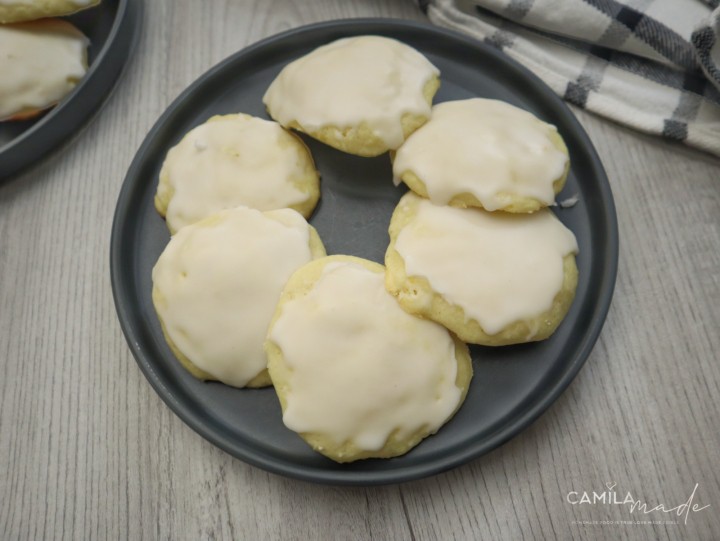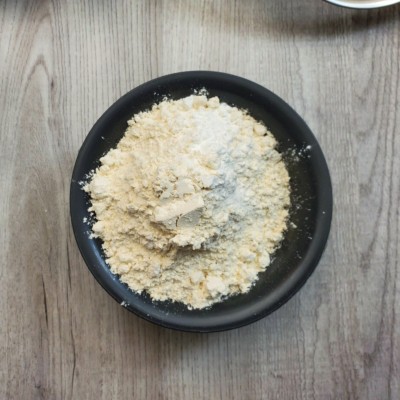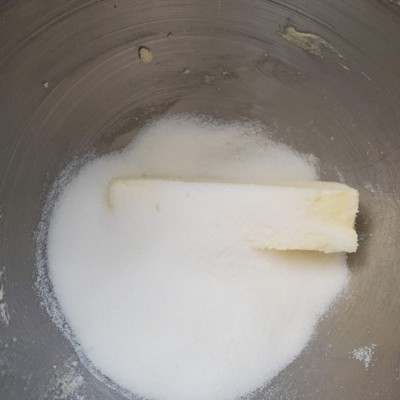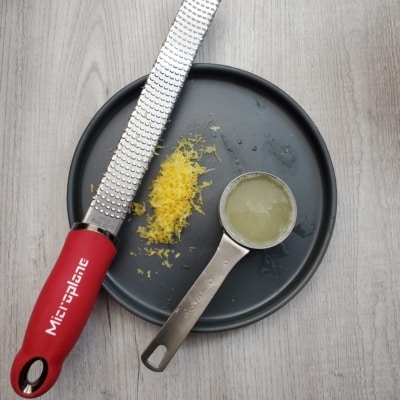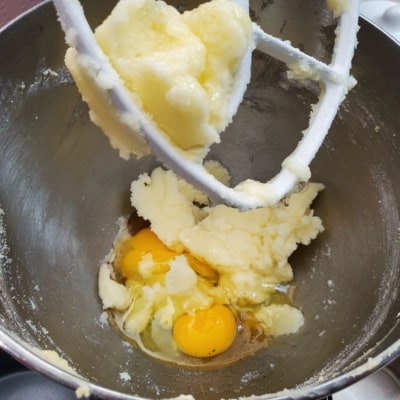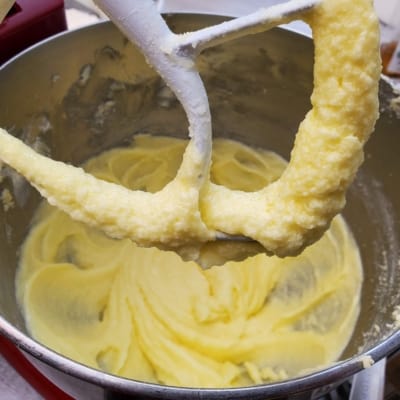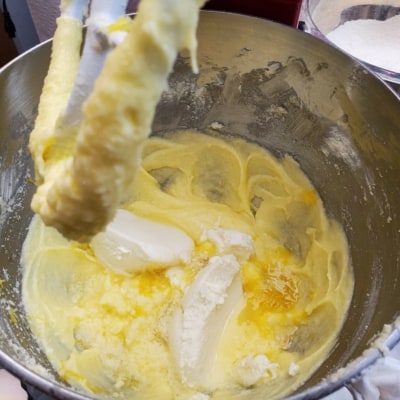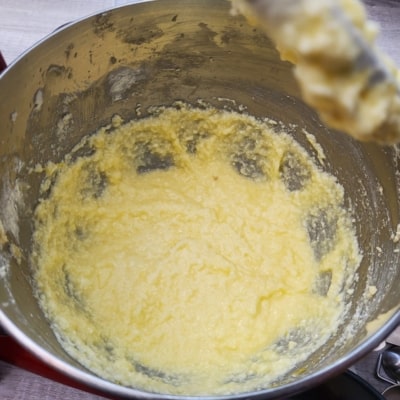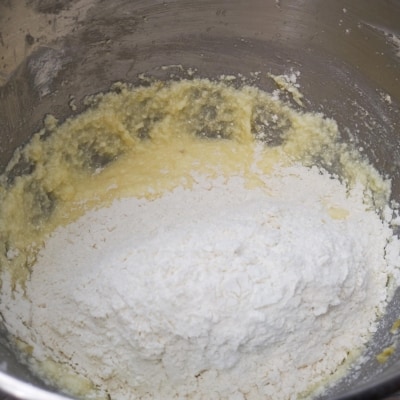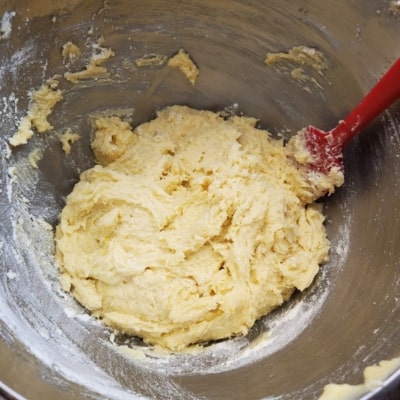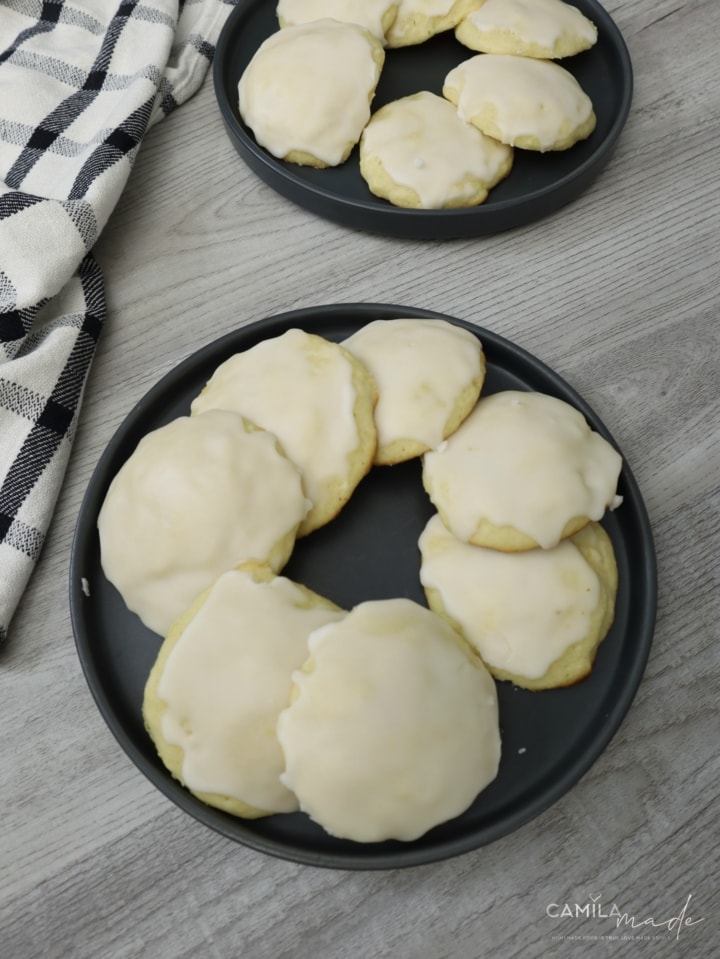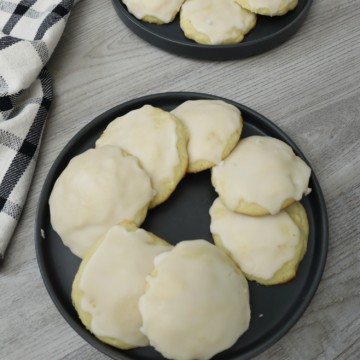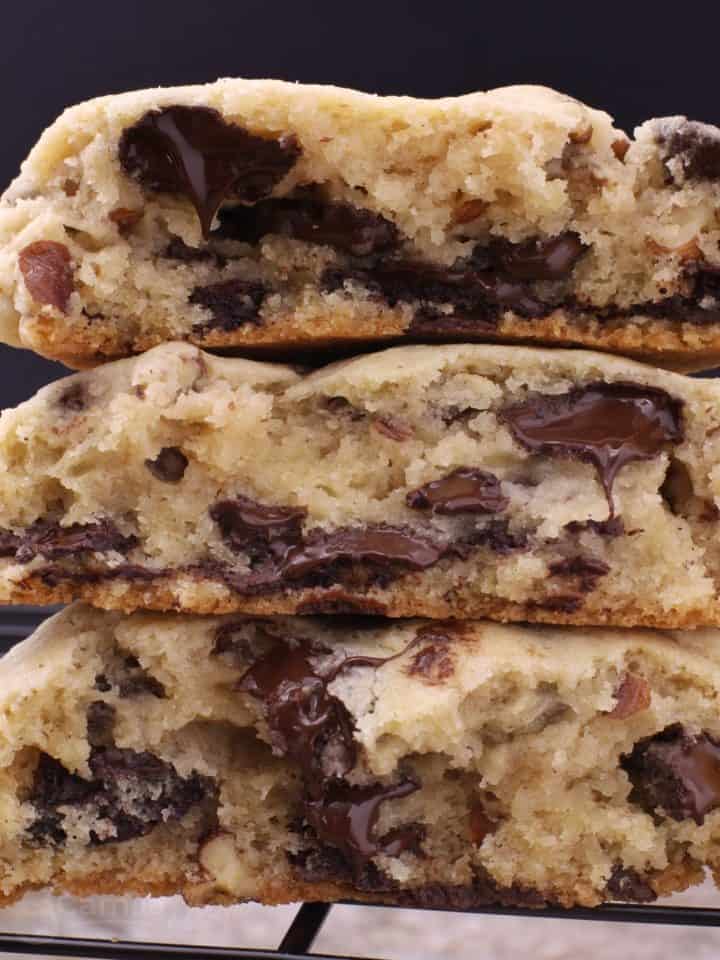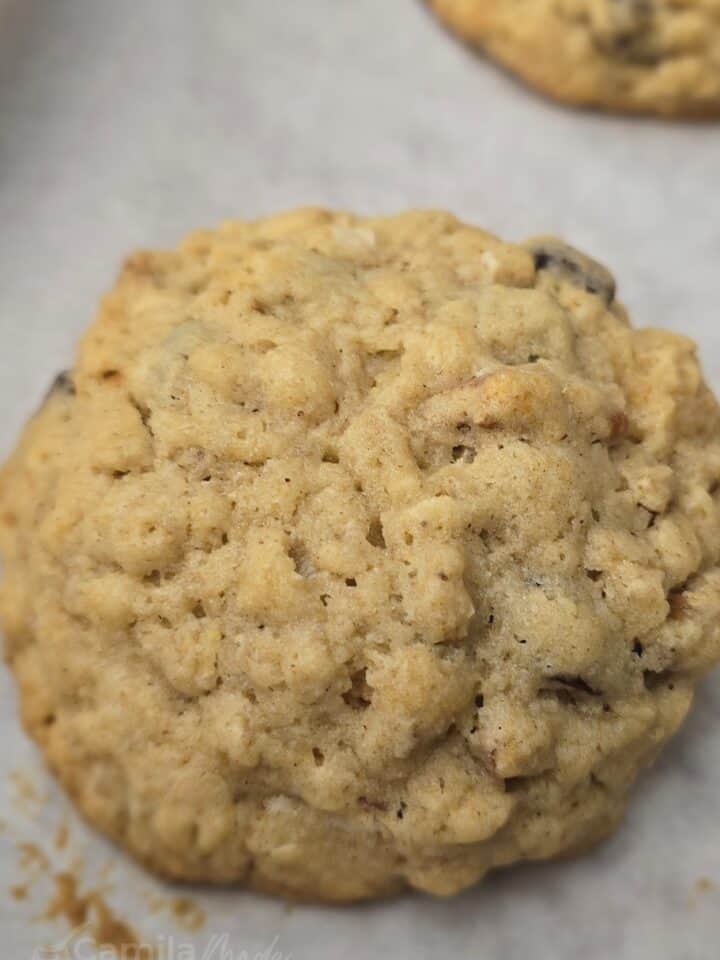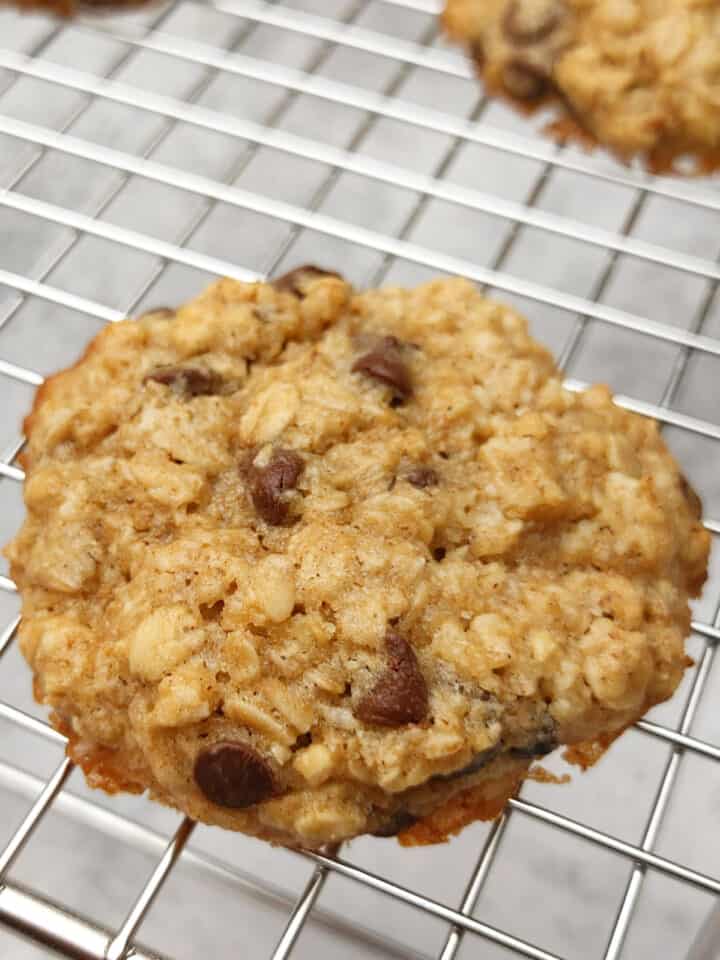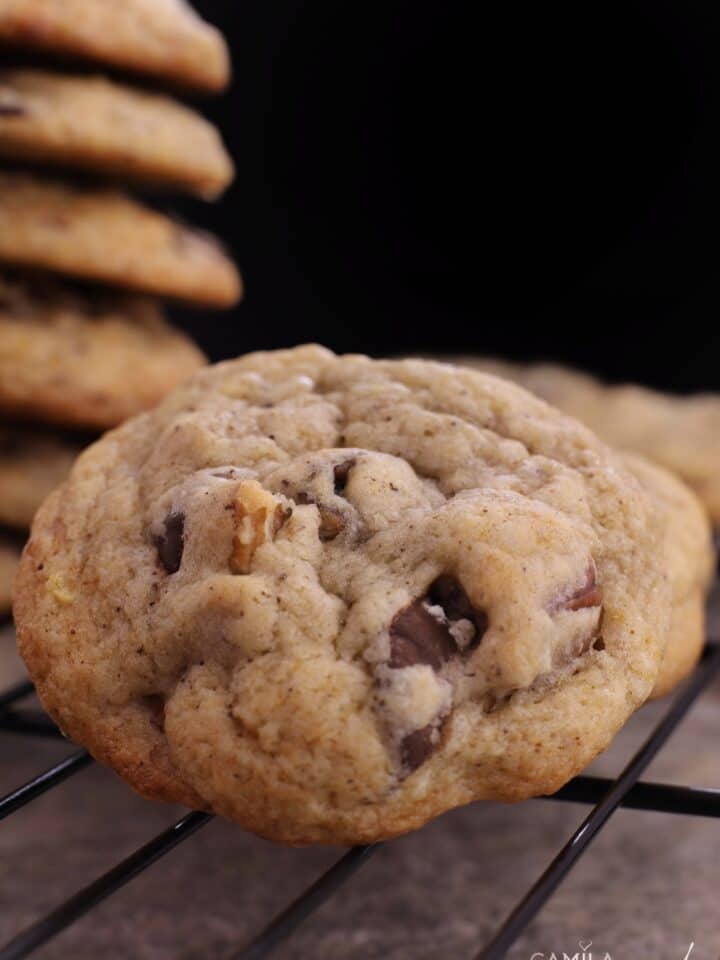These Lemon Ricotta Cookies are a lemon variation of Italian ricotta cookies. They're light and airy with a chewy texture, and it's finished with a delicious sweet lemon glaze.
These Lemon Ricotta Cookies are very simple and require a few basic ingredients, which you probably have on hand. It can serve as a foundation for other variations, such as orange ricotta cookies and chocolate chip ricotta cookies.
For more Lemon Inspired recipes, check out these recipes: Lemon Bars, Limoncello Cheesecake Bars, lemon pound cake, and lemon curd.
How to Make Lemon Ricotta Cookies
Note: The full instruction is provided in the recipe card below.
Line two baking sheets with parchment paper. Preheat the oven to 350 degrees Fahrenheit.
Sift together flour and baking powder in a large bowl and set aside. In a mixer fitted with the paddle attachment, cream the sugar and butter quickly until light and fluffy, about 4 minutes.
Reduce the speed to medium and add the eggs one at a time, beating well between additions.
Scrape down the sides and up the bottom of the bowl as needed. Add the ricotta, vanilla, 3 tablespoons of lemon juice, and lemon zest, and beat to combine.
Add the flour mixture and beat on low until combined, but do not overmix! Cover dough tightly with aluminum foil or plastic wrap and chill for 1 hour and up to 3 days.
Use a cookie scoop or a spoon to drop the cookie dough onto the prepared baking sheets an inch apart. Bake the lemon ricotta cookies for 12 minutes until the edges become lightly brown and the cookies look puffed and set. Remove the pan from the oven and let it cool slightly before transferring it to a wire rack to cool completely.
How to Make the Lemon Glaze
Note: The full instruction is provided in the recipe card below.
Whisk together the confectioners' sugar, lemon zest, and lemon juice in a small bowl to make a smooth glaze. Adjust the consistency with a bit of lemon juice or more confectioner's sugar to make a glaze thick enough to stick to the cookies when dipped.
Dip the surface of each cookie into it. Alternatively, use a spoon for glazing. Let the icing set at room temperature before serving or storing.
Related Recipes:
- Guava Thumbprint Cookies
- Peanut Butter Cup Cookies
- Chocolate Thumbprint Cookies with Dulce de leche
- Soft Molasses Cookies
- Peanut Butter Cookies
- Peanut Butter Blossoms
📖 Recipe
Lemon Ricotta Cookies
Tools
Ingredients
- 281.25 g (2 ¼ cups ) of all-purpose flour
- 1 teaspoon baking powder
- ¼ teaspoon kosher salt
- 1 cup granulated sugar
- ½ cup (1 stick) unsalted butter, at room temperature
- 2 large eggs , at room temperature
- 8 ounces Store-bought Ricotta or Fresh Ricotta , drained
- 1 teaspoon pure vanilla extract
- 2 tablespoons fresh lemon juice
- zest from 2 lemons
For the Lemon Glaze:
- ¼ cup freshly squeezed lemon juice
- zest from 1 lemon
- 2 cups confectioners sugar , sifted
Instructions
- Line two baking sheets with parchment paper. Preheat the oven to 350 degrees Fahrenheit.
- Sift together flour and baking powder in a large bowl and set aside. In a mixer fitted with the paddle attachment, cream the sugar, butter, and salt on high speed until light and fluffy, about 3 minutes. Reduce the speed to medium and add the eggs one at a time, beating well in between additions.
- Scrape down the sides and up the bottom of the bowl as needed. Add in the Ricotta, vanilla, 3 tablespoons lemon juice, and lemon zest, and beat to combine. Add the flour mixture and beat on low until just combined, but do not overmix! Cover dough tightly with aluminum foil or plastic wrap and chill for a least 1 hour and up to 3 days.
- Use a cookie scoop or a spoon to drop the cookie dough onto the prepared baking sheets an inch apart. Bake for 12 minutes until the edges become lightly brown, and the cookies look puffed and set. Remove the pan from the oven and let it cool slightly before transferring it to a wire rack to cool completely.
How to Make the Lemon Glaze
- Whisk together the confectioners' sugar, lemon zest, and lemon juice to make a smooth glaze in a small bowl. Adjust the consistency with a bit of lemon juice or more confectioner's sugar to make a glaze thick enough to stick to the cookies when dipped. Dip the surface of each cookie into it. Alternatively, use a spoon for glazing. Let the icing set at room temperature before serving or storing.
Notes
- To store: Allow them to cool completely, then place them in an airtight container. They can be stored at room temperature for up to 3 days or frozen for up to 2 months.
- To reheat: Bring them to room temperature or warm them in a preheated oven at 350°F (175°C) for a few minutes until warm and slightly crisp. Avoid microwaving to prevent them from becoming soft.
- Ricotta Cookies can be kept airtight at room temperature for up to 2 days or refrigerated for up to 1 week.
All nutritional information is based on third-party calculations and is only an estimate. Each recipe and nutritional value will vary depending on the brands you use, measuring methods, and portion sizes per household.
